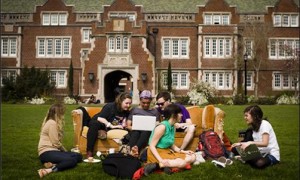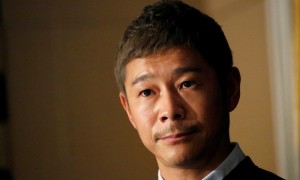Eight-day Golden Week sees huge crowds descend on popular tourist destinations.
As China comes down from a massive travel rush during the combined eight-day holiday for Mid-Autumn Festival and National Day, experts called for a resumption of the Labor Day Golden Week holiday as a way to ease the travel peak.
The China Tourism Academy predicted that more than 363 million trips will have been made during the holiday.
By Friday, 79 million passengers were estimated to have used the railways up about 8 percent over last year. Waterways had shipped around 2 million, an increase of about 17 percent on last year, Cntv.cn, the website of China Central Television, said on Saturday.
As large numbers of tourists swarmed scenic spots around China, it caused huge crowds and numerous complaints.
The Forbidden City in Beijing has long been a big draw for travelers. On Tuesday alone, the museum reported, it received more than 180,000 visitors, about six times higher than a regular day.
In Shaanxi province, a huge volume of visitors overwhelmed the capacity of the cable cars at Huashan Mountain, leaving tens of thousands stuck at the peak late into Tuesday night.
According to China Central Television, restless visitors demanded refunds from the tourism committee, and police were dispatched to help deal with the crisis.
The Beijing-HongKong-Macao expressway, the Shanghai-Kunming expressway and the route from Beijing to Kunming saw large increases in traffic on Saturday, according to Cntv.cn.
As there are only two long holidays in the country and paid leave is not well implemented by employers, people have limited chances for travel, Dai Bin, the director of China Tourism Academy, said in a report by Beijing Times on Saturday.
In the first half of this year there had been some natural disasters in China, so the demand for travel had built up to some degree. Also, the "toll-free" highway policy came into effect this holiday and a number of tourist attractions nationwide cut ticket prices for tourists, so travel peaks appeared nationwide, Dai said.
The travel rush during the "Golden Week" holidays happens because people do not take long journeys during shorter holidays, said Liu Simin, a researcher with the China Academy of Social Sciences, in a report by Beijing Times on Saturday.
Liu said that now the most important task is to release the pressure from the huge numbers of tourists. When the Labor Day Golden Week holiday was abolished in 2007, a chance to travel was reduced.
"I recommend restoring the Labor Day Golden Week holiday or setting up another long holiday," Liu said.
Golden Week is the name given to a semi-annual seven-day national holiday, implemented in 2000 by the Chinese government, including Spring Festival, Labor Day and National Day holidays.
These national holidays are primarily intended to help expand the domestic tourism market and improve the national standard of living, as well as allowing people to make long-distance family visits.
In 2008, the government shortened the Labor Day Golden Week holiday, usually occurring from May 1 to May 7, to three days and added three other short vacations to the list.
The adjustment was controversial and many people demanded the reinstatement of the Labor Day Golden Week holiday.
In 2009, the former vice-director of the National Tourism Administration, Zhang Xiqin, called for the restoration of the Labor Day Golden Week holiday.
The proposal sparked heated debate online. An online poll on People.com.cn, the news website of the People's Daily, received more than five million votes in 2009 and more than 92 percent of respondents supported its resumption.







